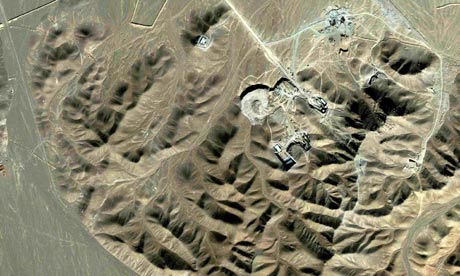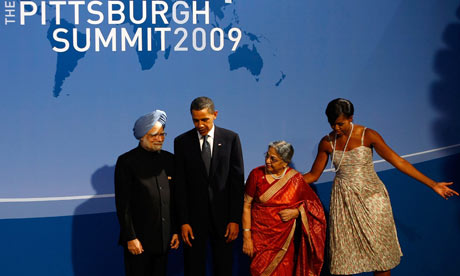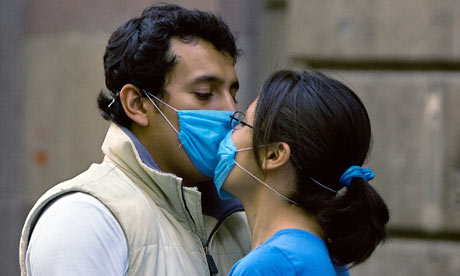
INDIAN WELLS, Calif. -- California Republicans gathering this weekend for their state convention do so against a familiar backdrop: the picture of a party in decline and struggling to find its way in an increasingly diverse state.
How the party will address its predicament will play out all weekend in a desert resort near Palm Springs.
Insiders will try to craft more effective voter registration campaigns and a strategy to draw more women and minorities. But the main attraction will be the three candidates seeking to succeed Gov. Arnold Schwarzenegger when he is termed out of office after next year.
Former eBay chief executive Meg Whitman, state Insurance Commissioner Steve Poizner and former congressman Tom Campbell do not wear the social conservative label, putting them at odds with many GOP die-hards. Instead, they are expected to focus on the area where they can find common ground with this weekend's delegates - state fiscal policy.
With California mired in a perpetual cycle of budget deficits, the candidates are expected to position themselves as the most responsible stewards of taxpayer money.
Whitman, a billionaire, officially launched her gubernatorial campaign this week, promising to slash an additional $15 billion in state spending and fire 40,000 state workers, although she declined to detail how she would do that. She also sought to curry favor with the party by giving it $250,000 from her personal fortune for voter-registration efforts.
The donation became tinged with a sense of irony when, later in the week, The Sacramento Bee reported that Whitman had not been registered to vote before 2002 and that there was no evidence she had ever registered as a Republican before 2007. The embarrassing revelations prompted Whitman to apologize and take "responsibility for my mistake."
Poizner, meanwhile, released a plan to cut taxes then appeared on a conservative Los Angeles talk radio show, where he signed a pledge saying he would never raise taxes. The pledge has been promoted to lawmakers nationwide by anti-tax activist Grover Norquist, president of Americans for Tax Reform in Washington, D.C.
Campbell released a plan he said would provide health insurance coverage to another 2 million Californians without any additional cost to taxpayers. He also has released his own detailed budget proposal, including a temporary 32-cent-a-gallon gas tax to help shore up the state budget during the recession.
Until this week, the soft-spoken Campbell has largely avoided taking part in the sharp exchanges between the campaigns of Whitman and Poizner, but he joined Poizner this week in blasting Whitman for her lack of specifics when she announced her plans to reduce state government.
In his speech to the convention Friday night, Campbell took a swipe at Whitman, without naming her. He challenged voters to question those who claim they will pay for government programs by eliminating "waste, fraud and abuse," as Whitman said she will do.
"We should never accept that phrase as a substitute for actual numbers," he said.
In a dig to Poizner, he added, "The second candidate has not identified a single dollar of specific cuts. Not one dime!"
He also challenged his fellow Republicans to do some soul-searching about the party's future. Republican registration in California has slipped to 31 percent of voters, compared to nearly 45 percent for Democrats, and its lawmakers are in the minority in both houses of the Legislature.
The GOP also has had difficulty attracting the 20 percent of California voters registered as independents.
Campbell called on Republicans to carefully consider which of the candidates has the best chance against a likely Democratic nominee with years of government service. He noted his five terms in Congress, his years teaching economic policy at several universities, and his short tenure as Schwarzenegger's budget director.
"More than any other candidate running for this office, with the exception of Jerry Brown, who actually was governor, I can say that I know what it takes to pass a balanced budget in government," her said.
Brown, the current attorney general, has hinted that he may seek the Democratic nomination in 2010, but has yet to announce a run.
Campbell and Poizner have sought to contrast their deeper knowledge of complex policy issues with Whitman's lack of experience in government. Whitman, a political novice, has demonstrated her fundraising prowess and poured $19 million of her own money into her campaign.
Schwarzenegger also focused on economics when he addressed the crowd Friday night, praising Republican leaders for holding the line on tax increases during this year's budget stalemates, even when they were at odds with him.
"I want you to know that I was not at all offended by you getting this message out," Schwarzenegger said. "I am a public servant. I serve you; you elected me."
He said GOP opposition to spending helped the state trim an additional $15.5 billion in the budget he signed in July. He also joked that he is used to being under fire, particularly in political disagreements with his wife, Maria Shriver, a Democrat. He joked that she has made him sleep in the garage for months.
Schwarzenegger has often been at odds with his own party, particularly over tax increases, government spending and his promotion of initiatives to curb global warming. His speech was crafted to play to the partisan crowd by promoting a Vietnam veterans bill he signed earlier in the day and promising to investigate ACORN.
The activist community service group has come under fire in recent weeks after its employees were caught on a hidden camera telling people how to lie to get government assistance.
"I will investigate. I will follow this. I will follow through, and I will have answers for you. I promise you that," he said.
Earlier, Schwarzenegger asked the state attorney general to investigate ACORN's activities. The group receives federal money, but officials with the governor's Department of Finance told The Associated Press earlier this week that they were not aware of it receiving any direct state aid.
Whitman and Poizner will appear separately on Saturday.
U.S. Rep. Mike Pence of Indiana, whose name has been floated as a possible presidential candidate in 2012, and Fred Barnes, the executive editor of the Weekly Standard, also will address the convention.




















